World's Top 10 Most Ethical Places
Every year, Ethical Traveler, a California nonprofit organization reviews the policies and practices of hundreds of nations in the developing world. It then selects nations that are doing the most impressive job of promoting human rights, preserving environment, and upholding civil society while creating a sustainable, community-based tourism industry.
1. Bahamas
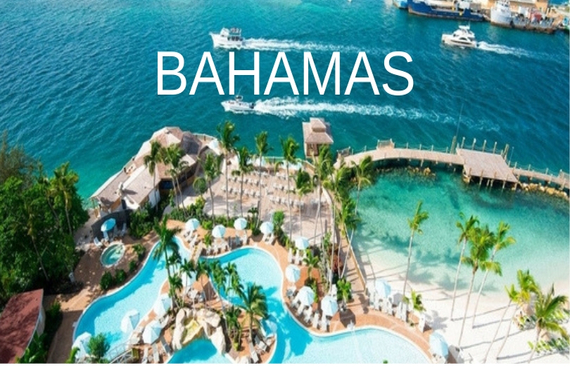
The Bahamas has been voted one of the top 10 most ethical places in the world. The latest report noted that the Bahamas won its way onto the list by making efforts to reduce human trafficking and expand national parks and protected areas, such as the Andros West Side National Park, which grew from 882,000 acres to nearly 1.3 million acres.
In other words, judges considered quality of drinking water in the category of environmental protection, women's rights in the category of human rights.
2. Barbados
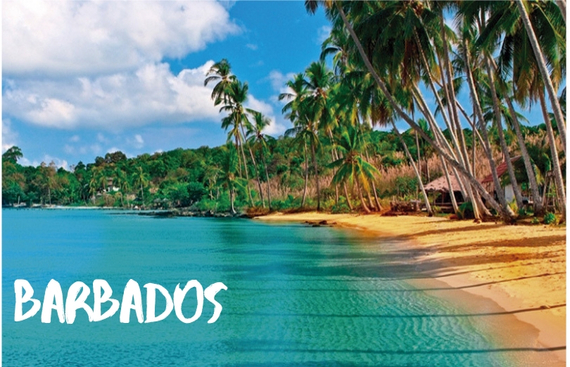
A Caribbean country, Barbados is known as a leading tourist destination and one of the region's most developed islands, with a high HDI number of 0.825.
It is credited for 'leading the way in finding sustainable means of building tourism while protecting its coastline.' This country also has high ratings with regards to child mortality rates as well as political rights, civil liberties and press freedom.
Barbados has addressed issues of gender equality as well as stigmas associated with HIV/AIDS, and is making progress towards action on human trafficking. Because of all these ethical reasons, it has come up in this list.
3. Cape Verde
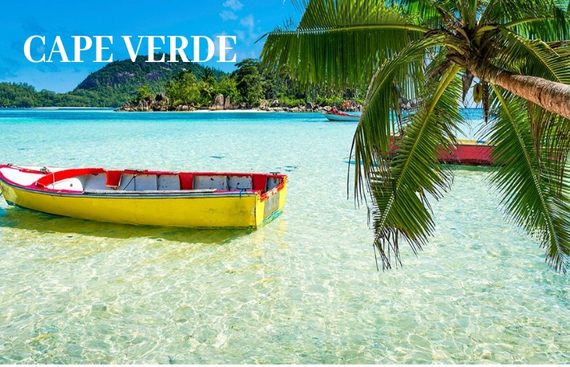
A stable representative Parliamentary republic, Cape Verde is among the most democratic nations in the world. This country has cast behind its dark past of slave trade and ocean piracy to emerge as one of the continent's most desirable place, with beaches, wildlife, food and music on offer.
The islands were uninhabited until the Portuguese colonized them in the 15th century and the country's riches were quickly exhausted with the abolition of slavery and the exit of the Portuguese.
Last year, the island nation saw its tourism figures increased by 27.4 percent, with tourists choosing to vacation for nearly six nights on average. It also scores high on renewable energy indices and increased its total installed renewable capacity by 751.14 percent, indicating 'a decisive movement towards sustainability and away from fossil fuels'.
4. Chile
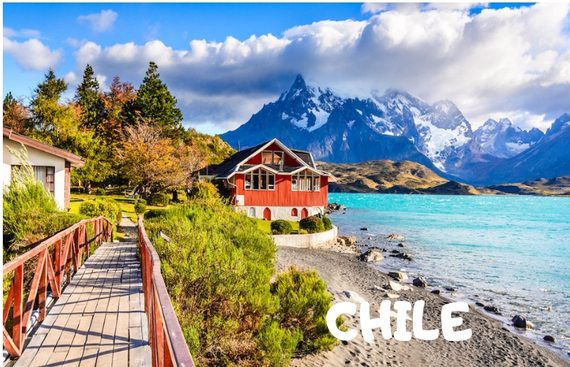
A South American country, Chile has been included on the list mainly because of its better gender equality record; excellent environmental initiatives and a forward-thinking programme.
It was one of the countries praised by the report for having taken huge steps forward in these matters. Areas such as the availability of safe drinking water, responsible sanitation practices and agricultural management are all explored in the document. Chile was found to score highly in the efforts made to ensure that every citizen has their political rights and civil liberties upheld, as well as freedom of the press for the whole nation.
Chile has made progress in its water, sanitation and agricultural management practices and has also been lauded for its income equality.
5. Dominica
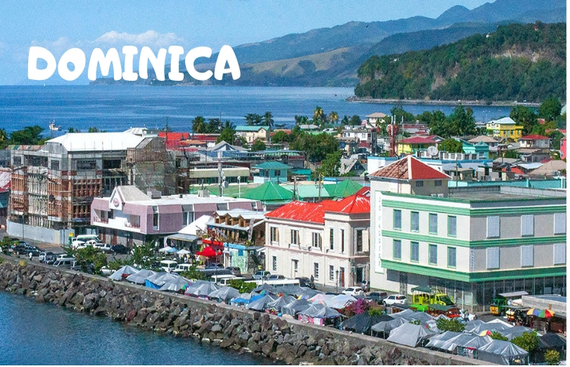
Also known as "Nature Isle of the Caribbean" for its unspoiled natural beauty, Dominica is an island offering a number of eco-resorts that are devoted to conserving and preserving the land. solar power is expanding, animal conservation is at the forefront, and energy independency is a main goal in the coming years.
The Caribbean country has made progress in universal primary education, child mortality rates as well as maternal health. Its native species and forests are relatively unspoiled in comparison to neighboring islands.
Impressive efforts are underway to save endemic mountain chickens. Other notable strides in Dominica include the expansion of solar power across the island, work to preserve native populations of frogs and iguanas, and a stated goal to become energy independent and carbon negative by 2020.
6. Latvia
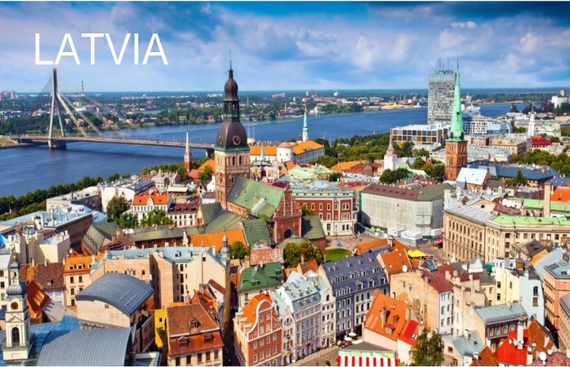
Visitors who return from Latvia recommended that this country should be "enjoyed slowly and calmly." Apart from its capital Riga, the cities and towns of Cesis, Kuldiga, Sigulda and Talsi are also on the world Atlas. Latvia has about 500 km of Baltic coastal beaches, forests, rivers, national parks and birding hotspots.
Besides its beautiful landscape, Latvia is well-rated for human rights and press freedom, and also received high ratings for environmental protection. Latvia also is the highest ranked country of this year, according to The World Economic Forum's Global Gender Gap Report for 2013, showing Latvia to be a leader in gender equality.
It is one of the only countries in the world where natural ecosystems and forests still comprise half of its territory. This untouched natural wonder is perfect for sustainable exploration.
7. Lithuania
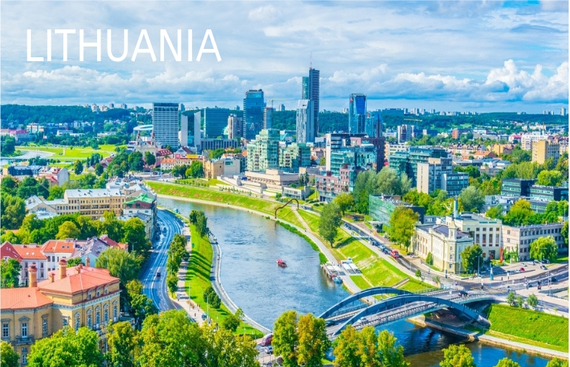
As per the Ethical Traveler's report, Lithuania is among the top scorers on environmental criteria, human rights and social welfare.
A member of the this country is today a house of treasures for the seeking traveler, offering everything from hundreds of miles of serene Baltic coast, heritage and history in copious doses to outdoor hiking trails, nature activities, and sport and clubbing.
8. Mauritius
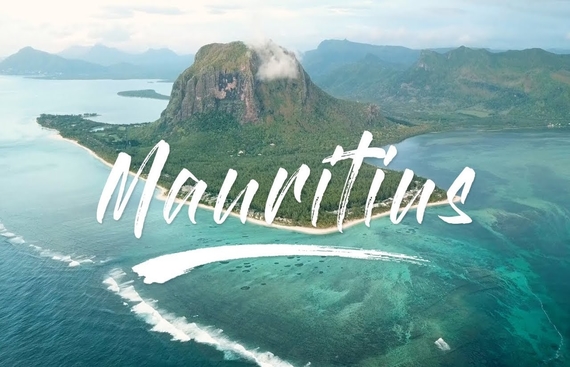
Clear waters, lush green forests, and pristine beaches, pretty much defines Mauritius. The country's natural wonders are well-protected Significant improvements in property rights, monetary freedom, and management of government spending have elevated Mauritius to a high rank on the Heritage Foundation's Economic Freedom Index.
Mauritius is also one among the leading island states that are taking proactive steps in environmental policies. Mauritius offers beaches and activities such as scuba diving and snorkeling, deep-sea fishing. Indians will connect easily with the multiplicity of familiar festivals such as Holi, Ugadi and Cavadi celebrated by Mauritians of Indian descent.
1. Bahamas
The Bahamas has been voted one of the top 10 most ethical places in the world. The latest report noted that the Bahamas won its way onto the list by making efforts to reduce human trafficking and expand national parks and protected areas, such as the Andros West Side National Park, which grew from 882,000 acres to nearly 1.3 million acres.
In other words, judges considered quality of drinking water in the category of environmental protection, women's rights in the category of human rights.
2. Barbados
A Caribbean country, Barbados is known as a leading tourist destination and one of the region's most developed islands, with a high HDI number of 0.825.
It is credited for 'leading the way in finding sustainable means of building tourism while protecting its coastline.' This country also has high ratings with regards to child mortality rates as well as political rights, civil liberties and press freedom.
Barbados has addressed issues of gender equality as well as stigmas associated with HIV/AIDS, and is making progress towards action on human trafficking. Because of all these ethical reasons, it has come up in this list.
3. Cape Verde
A stable representative Parliamentary republic, Cape Verde is among the most democratic nations in the world. This country has cast behind its dark past of slave trade and ocean piracy to emerge as one of the continent's most desirable place, with beaches, wildlife, food and music on offer.
The islands were uninhabited until the Portuguese colonized them in the 15th century and the country's riches were quickly exhausted with the abolition of slavery and the exit of the Portuguese.
Last year, the island nation saw its tourism figures increased by 27.4 percent, with tourists choosing to vacation for nearly six nights on average. It also scores high on renewable energy indices and increased its total installed renewable capacity by 751.14 percent, indicating 'a decisive movement towards sustainability and away from fossil fuels'.
4. Chile
A South American country, Chile has been included on the list mainly because of its better gender equality record; excellent environmental initiatives and a forward-thinking programme.
It was one of the countries praised by the report for having taken huge steps forward in these matters. Areas such as the availability of safe drinking water, responsible sanitation practices and agricultural management are all explored in the document. Chile was found to score highly in the efforts made to ensure that every citizen has their political rights and civil liberties upheld, as well as freedom of the press for the whole nation.
Chile has made progress in its water, sanitation and agricultural management practices and has also been lauded for its income equality.
5. Dominica
Also known as "Nature Isle of the Caribbean" for its unspoiled natural beauty, Dominica is an island offering a number of eco-resorts that are devoted to conserving and preserving the land. solar power is expanding, animal conservation is at the forefront, and energy independency is a main goal in the coming years.
The Caribbean country has made progress in universal primary education, child mortality rates as well as maternal health. Its native species and forests are relatively unspoiled in comparison to neighboring islands.
Impressive efforts are underway to save endemic mountain chickens. Other notable strides in Dominica include the expansion of solar power across the island, work to preserve native populations of frogs and iguanas, and a stated goal to become energy independent and carbon negative by 2020.
6. Latvia
Visitors who return from Latvia recommended that this country should be "enjoyed slowly and calmly." Apart from its capital Riga, the cities and towns of Cesis, Kuldiga, Sigulda and Talsi are also on the world Atlas. Latvia has about 500 km of Baltic coastal beaches, forests, rivers, national parks and birding hotspots.
Besides its beautiful landscape, Latvia is well-rated for human rights and press freedom, and also received high ratings for environmental protection. Latvia also is the highest ranked country of this year, according to The World Economic Forum's Global Gender Gap Report for 2013, showing Latvia to be a leader in gender equality.
It is one of the only countries in the world where natural ecosystems and forests still comprise half of its territory. This untouched natural wonder is perfect for sustainable exploration.
7. Lithuania
As per the Ethical Traveler's report, Lithuania is among the top scorers on environmental criteria, human rights and social welfare.
A member of the this country is today a house of treasures for the seeking traveler, offering everything from hundreds of miles of serene Baltic coast, heritage and history in copious doses to outdoor hiking trails, nature activities, and sport and clubbing.
8. Mauritius
Clear waters, lush green forests, and pristine beaches, pretty much defines Mauritius. The country's natural wonders are well-protected Significant improvements in property rights, monetary freedom, and management of government spending have elevated Mauritius to a high rank on the Heritage Foundation's Economic Freedom Index.
Mauritius is also one among the leading island states that are taking proactive steps in environmental policies. Mauritius offers beaches and activities such as scuba diving and snorkeling, deep-sea fishing. Indians will connect easily with the multiplicity of familiar festivals such as Holi, Ugadi and Cavadi celebrated by Mauritians of Indian descent.